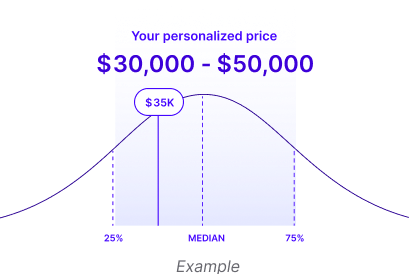0G
Fast, fair, easy pricing. No sales call required.
0G
|Visit 0g.ai
How much does 0G cost?
When negotiating with 0G, it's essential to leverage the unique aspects of their product offerings, particularly their focus on decentralized AI and web3 solutions. Highlight the scalability and innovative capabilities of their platform to justify your requirements and expectations. Additionally, understanding their ecosystem partnerships and community involvement can provide leverage points for securing better terms or discounts.It may also be beneficial to explore their pricing tiers for Validator Nodes, Storage Nodes, and services like the Disperser and Retriever. By comparing the features and costs associated with each, you can negotiate for a package that provides optimal value for your organization. Moreover, ask about any potential for volume discounts or incentives for long-term commitments to maximize your investment.Lastly, consider timing your negotiation discussions around critical milestones for 0G, such as the release of their mainnet or significant updates to their products. This can create a sense of urgency for them to offer attractive pricing to secure customers before these events.
See detailed pricing for your specific purchase
AI Quote Analysis
Upload your quote to check if you’re getting a fair price, under 2 minutes and completely free.

How does 0G price and package their products?
View pricing on 0G's website
Select a product to view 0G pricing
Validator Node
Not specifiedPricing Model: Not specifiedBilling: Not specifiedTerm Length: Not specifiedPopular Features: Not specified
Negotiating with 0G
Negotiation Tips
Introduce competition as a negotiating lever by informing your vendor about quotes you've received from alternative suppliers that offer similar services at lower costs. This tactic can create negotiating pressure on the current vendor to provide competitive pricing or enhanced terms in order to retain your business. Ensure to mention that other competitors have offered lower pricing while still meeting your functional needs.
If your company plans to scale or add users significantly, leverage this growth potential as a bargaining chip to negotiate lower pricing per user. Emphasize your growth plans during discussions to get a favorable rate, which typically aligns with supplier interest in establishing long-term partnerships.
Ensure that your contract not only meets current needs but also has provisions for scalability and pricing stability as you grow. This includes negotiating for future pricing tables or locking in your rate despite expansion during the contract term. Setting expectations here can prevent unwanted uplifts in future renewals.
Address any concerns regarding potential overages upfront in your negotiations. If your usage is predicted to grow, use that as leverage to request waivers for overage fees or limit your liability for such fees in the contract. Getting this concession can significantly reduce potential costs as your usage increases.
Request the removal of automatic renewal clauses in the contract. This allows you the flexibility to review terms annually and negotiate pricing based on performance over the term rather than being locked into potentially unfavorable terms without review. Highlight this as a requirement due to your finance team's policies.
Considerations when buying 0G
Ownership0G is owned by Zero Gravity Labs, Inc.
Fiscal year endDecember 31
Best months to buyJanuary, April, October
Payment TermsNet 30, Net 60
Upgrades/downgradesYes, 0G offers both upgrades and downgrades for its services, making it easy for users to adjust their resources as their needs change.
Redline thresholdRedline threshold estimate is $50k.
Legal
Additional Info
What is 0G?
0G is an infinitely scalable data availability layer and data storage system for Web3.0G's 1 Product
0G Newton Testnet
0G Newton Testnet focuses on testing the basic functionalities of 0G design including a decentralized storage network, a consensus network, a decentralized KV service, and a data availability service.News that may impact 0G pricing or negotiations
About Vendr
How can Vendr help me?
Vendr guarantees a low cost for software, no sales calls needed.Price ChecksWondering if you're getting a fair price? Upload your quote or contract to find out.